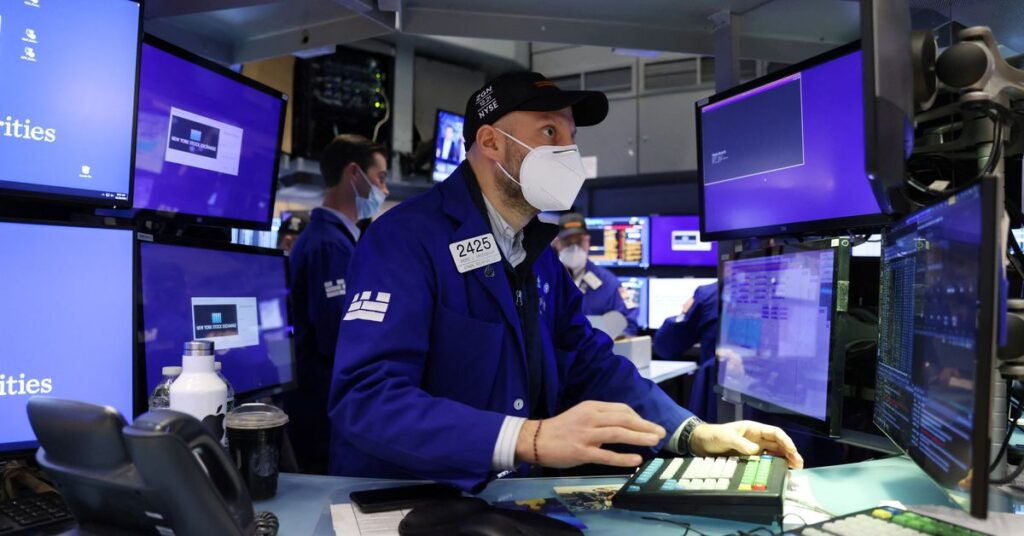[1/4]A trader in a face mask works on the trading floor at the New York Stock Exchange (NYSE) as the Omicron coronavirus variant continues to spread in Manhattan, New York City, U.S., December 20, 2021. REUTERS/Andrew Kelly/File Photo Acquire Licensing Rights
NEW YORK, Nov 1 (Reuters) – Global stock indexes rose sharply while benchmark 10-year Treasury yields fell to two-week lows on Wednesday after the U.S. Federal Reserve left interest rates steady and Fed Chair Jerome Powell nodded to the tighter financial conditions faced by businesses and households.
The U.S. central bank in a policy statement also left the door open to a further increase in borrowing costs, and it acknowledged the American economy’s surprising strength.
The Fed announced that it had decided to hold the policy rate steady in its current 5.25% to 5.50% range for now.
Powell in a press conference said that market borrowing costs would need to be sustainably higher for that to bear on future central bank monetary policy choices.
“In the press conference, Powell notes that the risks are becoming increasingly balanced; that’s a tick for slightly dovish,” said Amo Sahota, director at Klarity FX in San Francisco.
The Dow Jones Industrial Average (.DJI) rose 221.71 points, or 0.67%, to 33,274.58, the S&P 500 (.SPX) gained 44.06 points, or 1.05%, to 4,237.86 and the Nasdaq Composite (.IXIC) added 210.23 points, or 1.64%, to 13,061.47.
The pan-European STOXX 600 index (.STOXX) rose 0.67% and MSCI’s gauge of stocks across the globe (.MIWD00000PUS) gained 0.94%.
Benchmark 10-year note yields fell to 4.766%, the lowest since Oct. 17. Two-year yields dropped to 4.942%, the lowest since Oct. 10.
Earlier, Treasury yields slipped on Treasury Department plans to “gradually” boost the size of its debt auctions to meet financing needs.
The Treasury Department said the size of most auctions from November to January 2024 will increase and that it will need one additional quarter of increases to meet its funding plans.
The U.S. dollar index was firmer following the Fed statement but was last nearly flat . Against the yen, the dollar dropped 0.4% to 151.09 .
The Japanese yen fell sharply on Tuesday, when the Bank of Japan tweaked its bond yield control policy, loosening its grip on long-term rates and pushing the currency to a one-year low against the dollar.
That was followed by a fresh and sterner warning from Japan’s top currency diplomat Masato Kanda on Wednesday that authorities stood ready to respond to recent “one-sided, sharp” moves in the currency.
Oil prices fell to a three-week low after the Fed decision. Brent futures fell 39 cents, or 0.5%, to settle at $84.63 a barrel. U.S. West Texas Intermediate (WTI) crude fell 58 cents, or 0.7%, to $80.44.
Reporting by Caroline Valetkevitch; additional reporting by Laura Matthews, Lawrence White in London, Ankur Banerjee in Singapore and Amruta Khandekar and Shashwat Chauhan in Bengaluru; Editing by Alison Williams, Will Dunham and Mark Potter
: .


